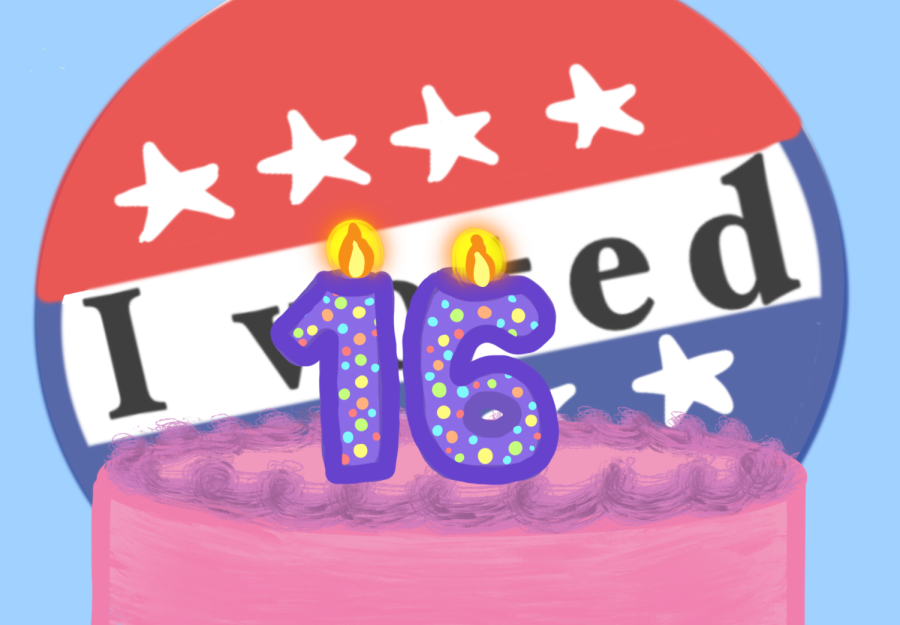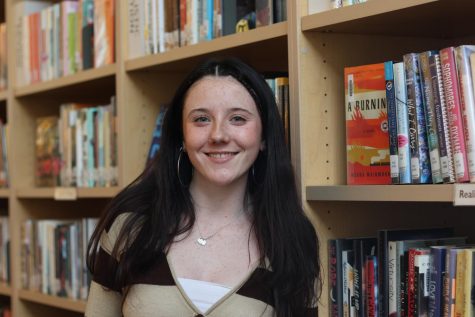Too Young To Have a Say, but Old Enough To Pay
Turning 16 comes with all sorts of new experiences — driving, working a job, and paying taxes. Yet, they can’t vote?
January 11, 2023
The countdown until I turn 18 looms over my head. The age is highly anticipated as a turning point when you mature from a mere child to an adult. When the clock strikes midnight, you are permitted to experience the changes that come with newfound rights.
One of the main changes is gaining the ability to exercise your rights as a voter.
I am hardly the first person to question, why 18? Why can I work a job, pay taxes, and contribute to society via labor but not have a say in the leaders who make decisions that affect me? Why do they get to use the money that I pay them for issues I am not allowed to have a say in?
This conundrum devalues the voices of the younger generation, who has received so much pressure to revolutionize the current society and “change the world.” It is a disservice to the teenagers of today and years to come to not be permitted to have a say.
Although Generation Z has been known to be very politically charged and active in both planning and participating in protests, many of them still lack the ability to have their voices heard in government settings. These student-led protests show that although they want change, they themselves cannot be heard in the most meaningful way, which is voting.
Education is at the root of society, and what better way to educate students on upcoming elections, candidates, measures, and governmental systems than to actually show them how to vote in the way that they feel aligns best with their values and hopes for the upcoming years.
Not only can we create better curricula in academic settings to educate young people on the ins and outs of ballots and democratic elections, but we can also create a foundation for young voters. If it is learned as curricula, habits will form, thus creating more politically-educated citizens who are prone to advocating for issues they are passionate about via casting votes.
Having school-allocated hours to learn about the importance of democracy and voting will do much more than just educate 16- to 18-year-olds on the bare minimum; it will cultivate a generation that sees voting as a privilege.
But the question still remains: why does this privilege only extend to those 18 and older?
Why are the people who will feel the most profound and lasting impacts of these ballot measures and government positions denied a chance to voice their opinions?
It seems unfair to have adult expectations placed on minors when they cannot advocate for their beliefs in such a meaningful way as choosing representatives and weighing on proposed laws and measures.
I felt hopeless just a few months ago when all of the adults around me were talking about the midterms.
I utilized resources such as actual voters around me as well as reputable news sources to teach myself about who was running for office and what predictions political scholars had. I soon came to the depressing realization that no matter how much I research or tune-in, my knowledge does not carry the weight of my 20-year-old brother or 18-year-old peers. I can do my best to advocate for the topics that hold the most importance and carry the most weight for me, but I can only do so much as a 17-year-old.
Obviously, voter turnout among young people — ages 18 to 29 — has been astonishingly low in the past couple of elections. This year’s midterms had the highest young voter turnout of the past 30 years, but still, only 29% of eligible voters voted. If 16 to 17-year-olds were able to learn the importance of voting and learn how to do it effectively, these numbers could be significantly higher than previous years.
Some cities have even put measures on ballots that allow 16- to 17-year-olds to vote in cities like San Francisco, California and Takoma Park, Maryland. So, this movement has traction and support from some politicians and voting citizens. These ballot measures show a promising pattern of progress within states across the country.
Voting is one of the main ways to create the most significant change, so with all of this being said, it seems unjust to withhold a vote for someone who wants a say.





